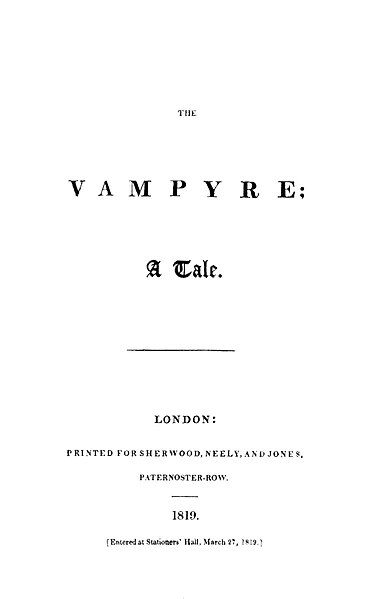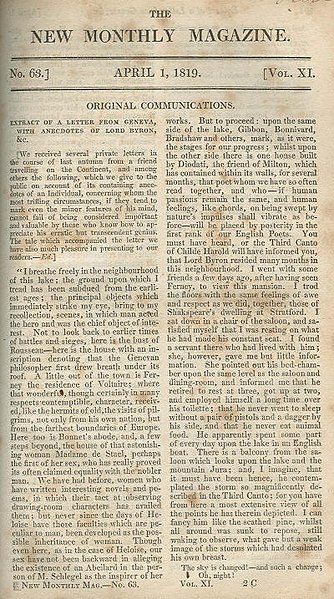The Black Vampyre: A Legend of St. Domingo
The Black Vampyre; A Legend of St. Domingo is an American short story published in 1819 by the pseudonymous Uriah Derick D'Arcy. It is credited as "the first black vampire story, the first comedic vampire story, the first story to include a mulatto vampire, the first vampire story by an American author, and perhaps the first anti-slavery short story." The Black Vampyre tells the story of a black slave, who is resurrected as a vampire after being killed by his captor; the slave seeks revenge on his captor and achieves it by stealing the captor's son and marrying the captor's wife. D'Arcy sets the story against the conditions that led to the Haitian Revolution.
The front (first) page of the second edition
"The Vampyre" is a short work of prose fiction written in 1819 by John William Polidori taken from the story Lord Byron told as part of a contest among Polidori, Mary Shelley, Lord Byron, and Percy Shelley. The same contest produced the novel Frankenstein; or, The Modern Prometheus. "The Vampyre" is often viewed as the progenitor of the romantic vampire genre of fantasy fiction. The work is described by Christopher Frayling as "the first story successfully to fuse the disparate elements of vampirism into a coherent literary genre."
1819 title page, Sherwood, Neely, and Jones, London.
The New Monthly Magazine, 1 April 1819.



